 | 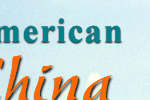 |  |  |
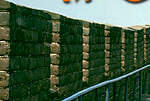 | 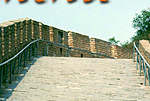 | 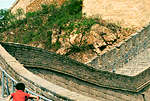 | 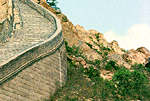 |
 |  |  | 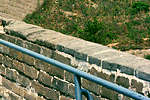 |
 |  |  | 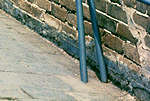 |
|
August 30, 2002 Arming the World: What the US Fears |
|
The book provides details on China’s involvement – including funding, parts, and supervision – of Iraq’s, Iran’s, North Korea’s and Pakistan’s nuclear programs. The authors also attempt to persuade the reader that the PLA is an aggressive force, hoping not only to acquire territory and intimidate neighbors, but also enrich itself with the sale of obsolete – and not so obsolete – weapons along with the "legitimate" goods manufactured in the many PLA owned factories. The PLA’s surprise invasions of India and Vietnam, continuous hostile posture and rhetoric toward Taiwan, surprise attack in North Korea, occupation of the Spratlys, Tibet and East Turkestan and infiltration of Burma are evidence of the PLA’s intentions to be much more than a home defense against greedy foreign powers, according to Timperlake and Triplett. Not only is China arming "terrorists and terrorist sponsoring states," but arms deals with Russia for an increasingly powerful navy – Kilo class subs, Sovremeny class destroyers and various missile technologies – and slow but sure encirclement of India and increasing naval penetration of the Indian Ocean constitute a direct threat to … US power in East Asia (and our allies of course). Timperlake and Triplett are two of many in the US Establishment who see China’s continued reluctance to heed America’s call to stop selling weapons to US enemies as a direct challenge and threat. This particular group of China Watchers point to the corrupt leadership and clan-based dominance of the PLA hierarchy as the main catalyst for arms sales. As the sons and daughters of the PLA leadership and their friends become rich, China also gains the allegiance of certain client states within its sphere of influence that allow it to ease Western powers and their allies out of East Asia. Along with the goodwill of those who have fallen afoul of US graces, China slowly gains the military might to deter the US from intervening in Taiwan and eventually to challenge the US outright. China’s gains in the arms trade seem to be quite clear: money and power. What needs to be looked at even more closely is why so many client states out there are willing to "risk the wrath" in order to obtain these weapons? Is it really so they can attack and destroy Europe and the US after all? Or perhaps is it because of the last few countries to get slapped up militarily, all have been Third World countries, almost all have been Middle Eastern and almost all have been hit with a "made in the USA" stick – be it Israel or the US itself. In Red Dragon Rising, the authors give examples of the aggressive nature of the Chinese military. But in accordance with Department of Defense rules of engagement, not one example is given for the US Army’s aggressive nature. And we can all name a few. The arms dealings of the Western powers, most notably France and the US, are unparalleled – terrorists, dictators, practitioners of apartheid: all were happy customers of the Western arms dealing machine. The treaties that the US so often invokes to punish China, North Korea and too a lesser extent Russia are seen by the rest of the World (that is outside of the First World") as a means to keep the power in the hands of the few. France, Britain and the US have nuclear weapons, as does Israel. In the Third World, the technology is fervently sought yet so often denied. Only those with whom Russia or China have dealt with have a chance to gain "the ultimate weapon." There is good reason for the "terrorist" nations of the world to seek these weapons. With "axis of evil" and "with us or against us" rhetoric, a DOD list of those who need to get punished and the obvious willingness of the US Army to fight in any terrain strikes the fear of God into the hearts of most nations. In order to protect themselves, "axis" nations would be absurd not to look to China and Russia for help. In Central Asia, the US promised training, arms and funding for several corrupt regimes in return for the use of bases. This is seen as a necessary evil. In response, Iran looks to Russia and China for help. China and Pakistan’s friendship probably did result in Pakistan gaining the bomb. And the US friendship with India certainly aided their nuclear program. The US and Indian air forces are planning joint exercises, the first since 1962 (ominously enough) and the reason is probably increased Chinese presence in the area and continuing economic and military aid to Pakistan. It’s the Great Game all over again, but with nukes and tanks and missiles and gas instead of muskets and cavalry. In order to "ensure the stability" of Central Asian regimes, the US must arm and train CIS militaries, according to Prof. Stephen Blank of the Army War College. Granted Professor Blank laments the lack of spending on social development, but he sees no alternative to the "logical" path of rearming the CIS. So we are caught in a steady spiral of rearmament, with the US and France on one side and Russia and China on the other. In between are various regimes or varying stability sitting on various (and huge) amounts of strategic resources. Is there a way out? If men like Professor Blank are the only experts, then the answer is No, there is no way to regain stability but to give the armies of the world new weapons with which to suppress and kill. Perhaps we should look at the real problems that result in anger, violence, and "gunboat diplomacy": poverty and an extreme gap in living standards. The people of the world aren’t selling enriched uranium and AK-47s, the people of the world aren’t slipping past arms proliferation treaties and helping this or that nation make a nuclear bomb. The people of the world benefit in no way from the military industrial complex. When you look to see who does, you will find the cause of war. As long as the elites of the world – the PLA leadership, the ex-Soviet bosses and the Lockheed-Martin lobbies – continue to live fat off of war, we will continue to hear that war is necessary, "we had to destroy the village in order to save it." * * * In a hilarious side-note, Jiang Zemin promised a new and improved missile proliferation treaty in exchange for a visit to Dubya’s Texas Ranch. The US gets an empty document and Jiang gets a little boost before the delayed 16th Congress, which may help him hold onto a little more power than the new generation of leaders would like. Hail the "Elites." |
Text-only printable version of this article Sascha
Matuszak is a teacher living and working in China. His articles have appeared
in the South China Morning Post, the Minnesota Daily, and elsewhere.
His exclusive Antiwar.com column (usually) appears Fridays. Archived columns Arming
the World: What the US Fears 1.3
Billion Problems For China China's
New Post-9/11 Status
Sweep 'Em Off the Streets
Chinese Embrace Progress China's
Afghan Agenda New
War May Reveal New Superpower, Part II New
War May Reveal New Superpower A
Chance for a New Friendship? Cheating
as a Way of Life China's
Internet Generation Free
Markets or Supermarkets Sailing
Towards World Significance China's
Youth Revolution |
Please Support Antiwar.comSend contributions to Antiwar.com or
Contribute Via our Secure Server | |

